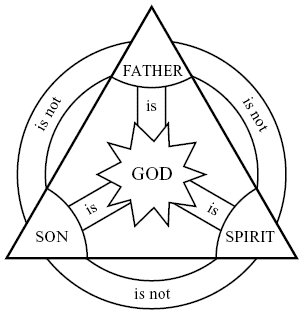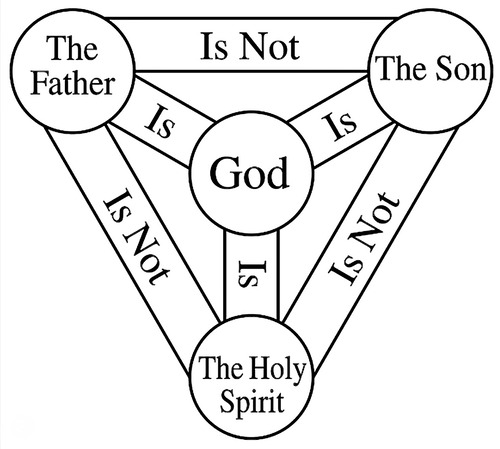Is Calvinism Fatalism in Christian Disguise? Think Again
We hear the taunt every now and then: “Calvinism is just fatalism dressed up in Christian jargon.” Critics argue Reformed theology reduces God to an impersonal force and human beings to helpless puppets in a cosmic drama. But the charge reveals a fundamental misunderstanding of Reformed theology. While Calvinism and fatalism may share surface-level similarities, they represent fundamentally different worldviews with radically distinct foundations, implications, and purposes. Understanding these differences isn’t merely academic—it’s essential for grasping the biblical vision of God’s loving sovereignty over all things.
WHY THE CHARGE IS FREQUENTLY MADE
The confusion between Calvinism and fatalism isn’t entirely unreasonable, but it stems from several key misunderstandings that deserve careful examination.
- Superficial Similarity: Both Calvinism and fatalism speak of a determined future, leading critics to assume they’re essentially the same worldview with different vocabulary.
- Misunderstanding of Predestination: Many assume God’s decree eliminates free will or moral accountability, failing to grasp how Reformed theology maintains both divine sovereignty and human responsibility.
- Philosophical vs. Theological Lens: Critics often approach Calvinism with a philosophical lens, not a biblical one, imposing foreign categories onto Scripture rather than allowing Scripture to define the terms.
- Emotive Objections: The idea of God determining everything can feel impersonal or unjust to modern ears, especially in cultures that prize individual autonomy and self-determination.
As Moses reminds us, “The secret things belong to the LORD our God, but the things that are revealed belong to us and to our children forever” (Deuteronomy 29:29). Our task is to embrace what God has revealed while humbly acknowledging the mysteries that remain beyond our comprehension.
WHAT FATALISM ACTUALLY IS
True fatalism represents a fundamentally different worldview from biblical Christianity. In fatalistic systems—whether ancient Stoicism, certain forms of paganism, or Islamic fatalism—fate, not a personal God, governs all outcomes. This creates several distinctive characteristics:
- No meaningful relationship between means and ends: If something is fated to happen, it will happen regardless of human action or inaction.
- Human choice is irrelevant: Decisions become meaningless since outcomes are predetermined by impersonal forces.
- Often leads to passivity or despair: Why strive, pray, or hope if fate has already sealed every outcome?
This worldview stands in stark contrast to the vibrant, purposeful theology found in Reformed Christianity.
WHAT CALVINISM ACTUALLY TEACHES
Reformed theology presents a rich, biblically grounded understanding of God’s relationship to creation that avoids fatalistic pitfalls while maintaining divine sovereignty.
- God’s Sovereignty: God ordains whatsoever comes to pass (Ephesians 1:11), but not in a cold or impersonal way—His decrees flow from His perfect character, wisdom, and love.
- Compatibilism: Human responsibility coexists with divine sovereignty without contradiction, as Scripture consistently demonstrates throughout its pages.
- God Ordains the Means as Well as the Ends: Unlike fatalism, Reformed theology insists God not only determines what will happen but also how it will happen. He ordains not just salvation, for example, but also the preaching of the gospel as the means to bring it about (Romans 10:14–17). He ordains we should pray—and that prayer should change things (James 5:16). He ordains that we should obey—and that obedience has consequences (Philippians 2:12–13).
- Providence is Personal, Purposeful: The Westminster Confession (5.1) defines God’s providence as “His most holy, wise, and powerful preserving and governing all His creatures and all their actions.” This is no fatalistic force—it’s the deliberate care of a loving Father. As Jesus said, “Are not two sparrows sold for a penny? Yet not one of them will fall to the ground outside your Father’s care” (Matthew 10:29).
Joseph’s words to his brothers perfectly capture this balance: “As for you, you meant evil against me, but God meant it for good, to bring it about that many people should be kept alive” (Genesis 50:20). Similarly, Peter declares that Jesus was delivered “according to the definite plan and foreknowledge of God” while simultaneously being crucified by “lawless men” (Acts 2:23). Both divine purpose and human responsibility operate fully without contradiction.
WHY CALVINISM ISN’T FATALISM
The distinctions between Reformed theology and fatalism become clear when we examine their fundamental characteristics and practical implications.
Personal God vs. Impersonal Fate: Calvinism teaches all things are governed by a personal, wise, and loving God who acts according to His perfect character, not by blind, arbitrary fate.
Moral Responsibility Remains: Scripture consistently holds people accountable for real choices, as Paul demonstrates when he writes that God “will render to each one according to his works” (Romans 2:6–8) and Jesus warns that “every careless word that people speak, they shall give an accounting for it in the day of judgment” (Matthew 12:36–37).
Prayer and Obedience Matter: Unlike fatalism, Calvinism affirms that our actions are real and necessary components in God’s plan, not meaningless gestures in the face of predetermined outcomes.
God’s Sovereignty Leads to Comfort, Not Despair: Far from promoting passivity, Reformed theology encourages perseverance, humility, and hope by grounding believers’ confidence in God’s unchanging character and purpose.
As Proverbs 16:33 reminds us, “The lot is cast into the lap, but its every decision is from the LORD.” This is not random fate operating through dice and chance—it is divine wisdom governing even seemingly arbitrary events according to His perfect will.
HOW IT ALL MATTERS
The distinction between Calvinism and fatalism has profound practical implications for Christian living and gospel ministry.
If Calvinism were fatalism:
- Evangelism, prayer, and obedience would be pointless exercises since outcomes would be fixed regardless of our actions
- The cross of Christ would be a mechanical event, not a loving substitution planned and executed with redemptive purpose (Isaiah 53:10; John 10:17–18)
But Calvinism offers a robust view of God’s providence, human dignity, and redemptive purpose—all firmly rooted in Scripture’s revelation of God’s character and ways.
The difference transforms everything: evangelism becomes a joyful privilege rather than a futile effort, prayer becomes meaningful communion rather than empty ritual, and obedience becomes grateful response rather than mechanical compliance.
CONCLUSION: NOT FATE, BUT FATHERLY PROVIDENCE
Calvinism doesn’t lead to fatalism but to worship. The God of Reformed theology isn’t a distant, impersonal force manipulating events from afar, but a sovereign Father who governs all things for His glory and our good (Romans 8:28). This understanding calls us not to passive resignation but to active trust, faithful obedience, and confident hope.
As John Calvin himself wrote, “For the Lord so regulates all things that nothing takes place without His deliberation” (Institutes I.xvi.3). This isn’t fate—it’s providence. Not arbitrary destiny, but purposeful love. Not mechanical determinism, but the wise and gracious governance of our God who works all things according to the counsel of His will for the ultimate good of His people and the display of His own glory.
The charge that Reformed theology is merely fatalism in Christian disguise crumbles under careful examination. Instead, we discover a rich, biblical vision of divine sovereignty that enhances rather than diminishes human dignity, responsibility, and hope.
IS CALVINISM FATALISM IN DISGUISE? RELATED FAQS
What about the problem of evil—doesn’t Reformed theology make God the author of sin? Reformed scholars carefully distinguish between God decreeing to permit sin and God being the efficient cause of sin. John Calvin wrote God “wills” sin only in the sense that He permits it for greater good, while we remain the responsible agents. RC Sproul famously argued God is the “author” of the story in which sin appears, but not the “actor” who commits sinful deeds. This view maintains both divine sovereignty and human moral culpability.
- How does Reformed theology handle the apparent randomness in nature and history? Reformed scholars see apparent randomness as evidence of God’s transcendence, not His absence. John Frame argues what appears random to finite minds operates according to divine wisdom we cannot fully grasp. Even quantum mechanics, they contend, doesn’t introduce true randomness but reveals the limits of human predictability—God’s providence operates at every level, from subatomic particles to cosmic events, though often beyond our comprehension.
- Did the early church fathers teach anything resembling fatalism, and how did Reformed theology develop differently? Church historians note while some early fathers like Augustine wrestled with divine sovereignty, they consistently rejected fatalistic interpretations. Reformed scholars like Richard Muller emphasise Calvin and later Reformed theologians built upon Augustine’s writings while carefully avoiding the fatalistic implications that Augustine himself rejected. The Reformation recovered biblical balance between sovereignty and responsibility that had been obscured in the medieval times.
- How do we address the objection that God is tyrannical? Theologians like Michael Horton argue God’s sovereignty flows from His essential goodness, not arbitrary power—making Him perfectly trustworthy rather than tyrannical. They distinguish between God’s revealed will (moral commands) and His secret will (eternal decrees), showing that God genuinely commands what is good while mysteriously permitting evil for redemptive purposes. This preserves both God’s moral perfection and His absolute sovereignty without reducing either to mechanical fate.
How do we respond to scientific determinism and neuroscience challenges to free will? Reformed thinkers like Tim Keller and John Frame argue scientific determinism actually supports rather than threatens Reformed theology by showing that human choices have genuine causes. They contend that neuroscience reveals the mechanisms through which God works providentially, not evidence against divine sovereignty. Rather than eliminating moral responsibility, they argue that understanding the causal nature of human decision-making helps us better appreciate how God can work through natural processes to accomplish His purposes without coercion.
IS CALVINISM FATALISM IN DISGUISE? OUR RELATED POSTS
Editor's Pick

The Nashville Statement: Why Affirm It Despite Media Backlash?
WHY DO REFORMED CHRISTIANS STAND BY THIS STATEMENT ON MARRIAGE AND GENDER? When the Nashville Statement was released in 2017, [...]

Who Is Belial? Solving The 2 Corinthians 6:15 Mystery
Belial: This name from the pages of Scripture chills the soul. Who is this mysterious figure Paul invokes in 2 [...]

Celibacy Or Castration: What Jesus Really Means in Matthew 19:12
One of Scripture's most shocking misinterpretations led theologian Origen to castrate himself in the third century. His tragic mistake? Taking [...]

Philippians 4:13: Did Paul Really Mean We Can Do ALL Things?
"I can do all things through Christ who strengthens me." It's on gym walls, graduation cards, and motivational posters everywhere. [...]

The Ordinary Means of Grace: Why Are They Indispensable?
ORDINARY MEANS FOR EXTRAORDINARY TRANSFORMATION What if God's most powerful work in believers' lives happens through the most ordinary activities? [...]

Is the Bible God’s Word? Or Does It Only Contain God’s Word?
The authority of Scripture stands at the crossroads of modern Christianity. While some argue the Bible merely contains God’s Word [...]

Will We Remember This Life in Heaven? What Isaiah 65:17 Means
"Will I remember my spouse in heaven? My children? Will the joy we shared on earth matter in eternity?" These [...]

From Empty to Overflow: The Abundant Life Jesus Promised
(AND WHY YOU SHOULDN’T SETTLE FOR LESS) We're surviving, but are we thriving? If we're honest, there's a gap between [...]

What Does Jesus Save Us From?
THREE BIBLE TRUTHS ABOUT SALVATION "Jesus saves." We’ve seen it on bumper stickers, heard it shouted at sporting events, maybe [...]

If God Wants Everyone Saved, Why Aren’t They?
THE REFORMED VIEW ON GOD’S DESIRE VS HIS DECREE The question haunts every believer who has lost an unbelieving loved [...]
SUPPORT US:
Feel the Holy Spirit's gentle nudge to partner with us?
Donate Online:
Account Name: TRUTHS TO DIE FOR FOUNDATION
Account Number: 10243565459
Bank IFSC: IDFB0043391
Bank Name: IDFC FIRST BANK






